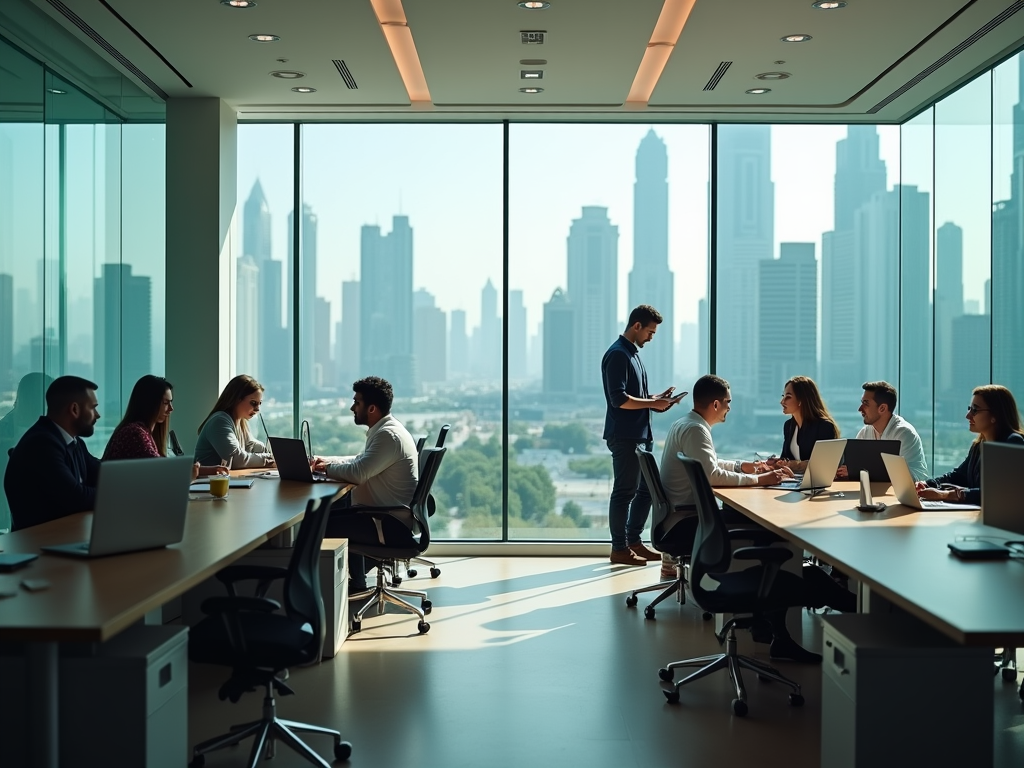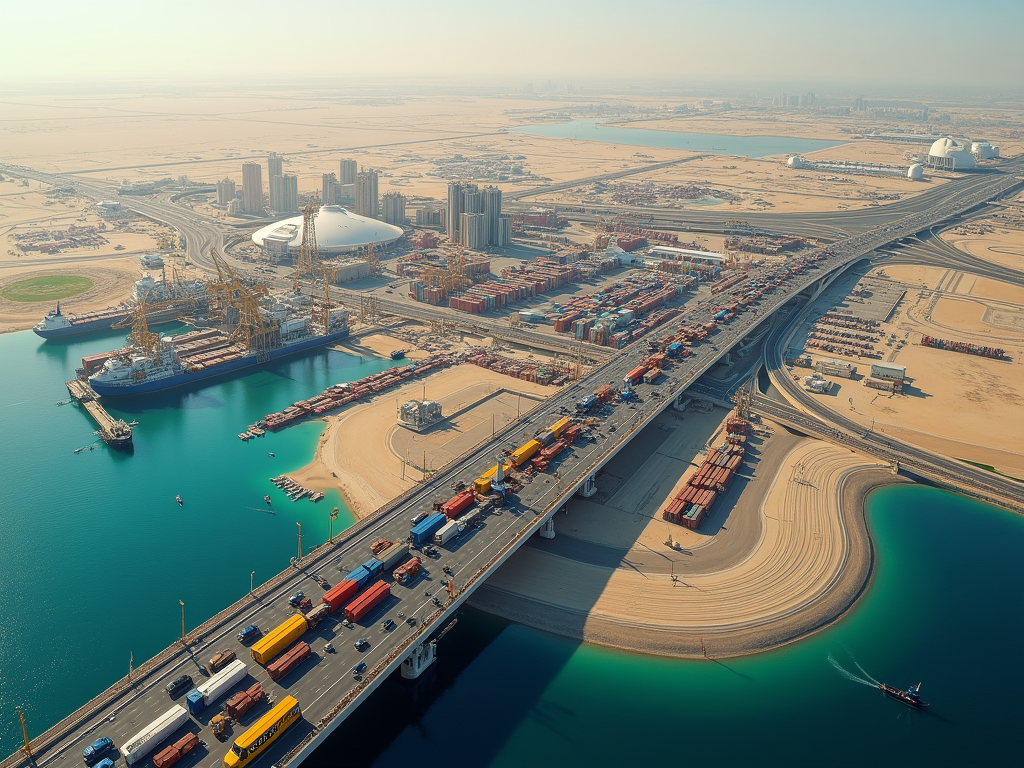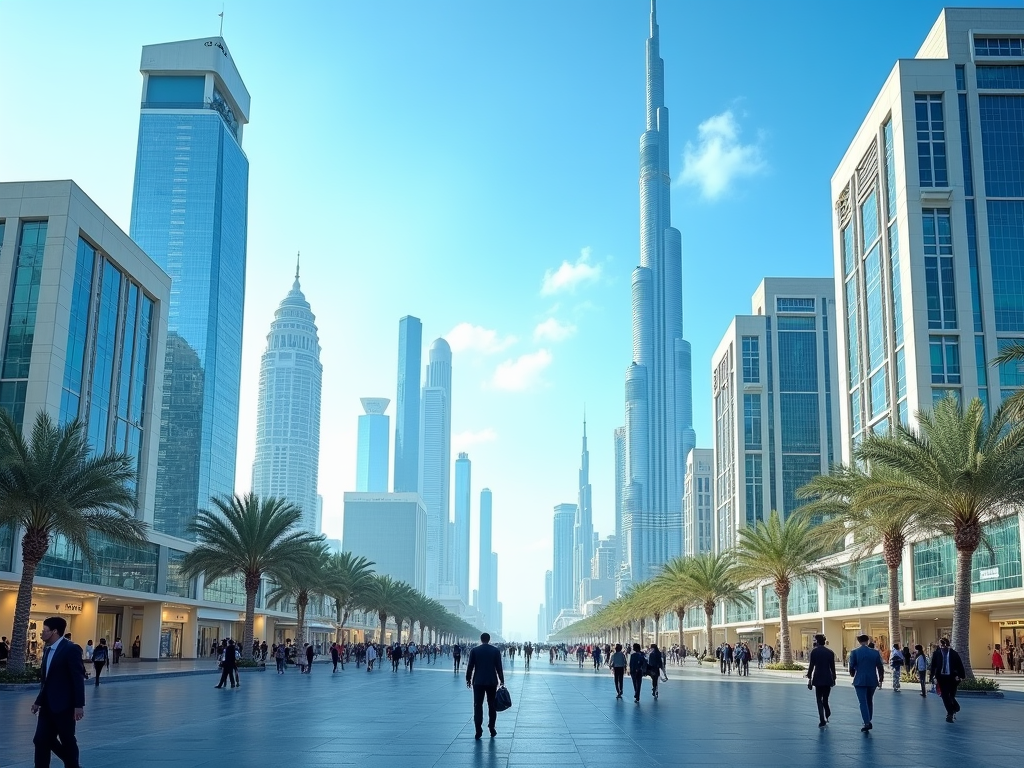Dubai’s strategic policies have been pivotal in establishing the emirate as a global business hub. These regulations and initiatives facilitate a favorable environment for both local and international enterprises. By focusing on innovation, economic diversification, and easing trade regulations, Dubai has significantly influenced business development. The city’s ambitious initiatives not only attract foreign investment but also promote sustainable growth. Ultimately, Dubai’s policies have created pathways for businesses to thrive, contributing to the overall economic landscape of the region.
1. Economic Diversification through Vision 2021

Dubai has actively pursued economic diversification as part of its Vision 2021 strategy, which aims to reduce reliance on oil revenue and promote sustainable economic growth. This initiative fosters the development of sectors such as tourism, trade, logistics, and technology. By encouraging industries beyond oil, Dubai enhances its attractiveness to potential investors and entrepreneurs. The diversification strategy is reflected in various policies, providing incentives that propel small and medium-sized enterprises (SMEs) to innovate and expand. The government’s focus on sectors such as renewable energy and technology boosts local businesses and draws international firms seeking to invest in forward-thinking markets.
2. Free Zones: Encouraging Global Investment

Dubai’s array of free zones plays a critical role in attracting foreign investment. These specially designated areas offer zero corporate tax, 100% foreign ownership, and full repatriation of profits. Such favorable conditions create an irresistible proposition for international businesses looking to establish a foothold in the Middle East. The free zones cater to diverse industries, such as technology, healthcare, and finance, making Dubai a versatile destination for various enterprises. Some notable free zones include:
- Dubai Silicon Oasis (DSO)
- Dubai Multi Commodities Centre (DMCC)
- Dubai Internet City (DIC)
- Jebel Ali Free Zone (JAFZA)
- Dubai Healthcare City (DHCC)
These hubs not only provide conducive business environments but also foster innovation through collaboration among various stakeholders, including government entities and private businesses.
3. Infrastructure Development: Key to Business Success
Robust infrastructure is a cornerstone of Dubai’s economic strategy, enhancing its status as a global business hub. The emirate is renowned for its world-class transport networks, including the Dubai International Airport and the expansive metro system. This infrastructure allows for the seamless movement of goods and people, which is crucial for business operations. Moreover, the continuous investment in smart cities and digital transformation initiatives positions Dubai at the forefront of modern business practices. The following elements are critical in supporting business success:
- Efficient logistics and supply chain capabilities
- Advanced telecommunications systems
- State-of-the-art office spaces and business parks
- Access to a diversified customer base
These infrastructural enhancements not only facilitate business operations but also attract global companies looking to leverage these advantages for growth.
4. Regulatory Framework: Simplifying Business Operations
The regulatory framework in Dubai has evolved to simplify business operations, which significantly impacts development. The government continuously seeks to streamline processes and eliminate bureaucratic obstacles, making it easier for businesses to set up and operate efficiently. Recent changes in laws, such as the introduction of a single-window system for business licensing, reduce the time and effort involved in starting a business. Furthermore, initiatives such as the ‘100% Business Ownership Law’ empower foreign investors, reinforcing Dubai’s commitment to being a business-friendly environment. This regulatory clarity and ease of doing business are major draws for international entrepreneurs and investors seeking stability and transparency.
5. Future Trends: Embracing Innovation and Sustainability
Looking ahead, Dubai’s commitment to innovation and sustainability is poised to shape the future of business development. The government is investing heavily in technology, particularly in areas such as artificial intelligence, blockchain, and renewable energy. As businesses increasingly prioritize sustainable practices, Dubai’s focus on green initiatives aligns with global trends, making the emirate a leader in supportive frameworks for sustainable business operations. This proactive stance not only prepares the emirate for future challenges but also enhances its competitive edge on the global stage. The ongoing support for startups and innovation-driven enterprises remains a key focus, ensuring that Dubai continues to adapt to the evolving business landscape.
Conclusion
In summary, Dubai’s strategic policies have had a profound impact on business development within the emirate and beyond. Through economic diversification, the establishment of free zones, significant investments in infrastructure, and a conducive regulatory environment, Dubai has positioned itself as a leading business hub. With a keen eye on innovation and sustainability, the future looks promising for businesses looking to thrive in this vibrant market. As Dubai continues to evolve, its policies will likely further enhance its attractiveness to global enterprises, ensuring sustained growth and development.
Frequently Asked Questions
1. What are the advantages of setting up a business in Dubai?
Setting up a business in Dubai offers numerous advantages, including 100% foreign ownership in free zones, tax exemptions, a strategic geographical location, and a robust infrastructure network.
2. How does Dubai encourage innovation among businesses?
Dubai fosters innovation through initiatives like the Dubai Innovation Strategy, which encourages investment in technology and startups, alongside providing access to funding and partnerships.
3. Are there any restrictions for foreign investors in Dubai?
Foreign investors can enjoy various benefits, including full ownership in designated free zones. However, in some sectors, they may require a local partner to operate outside these zones.
4. What sectors are prioritized for business development in Dubai?
Key sectors prioritized for business development in Dubai include tourism, logistics, trade, technology, and renewable energy, aligned with the government’s economic diversification strategy.
5. How is Dubai preparing for future business challenges?
Dubai is preparing for future business challenges by investing in innovation, sustainability, and digital transformation initiatives, ensuring it remains competitive in the evolving global market.
